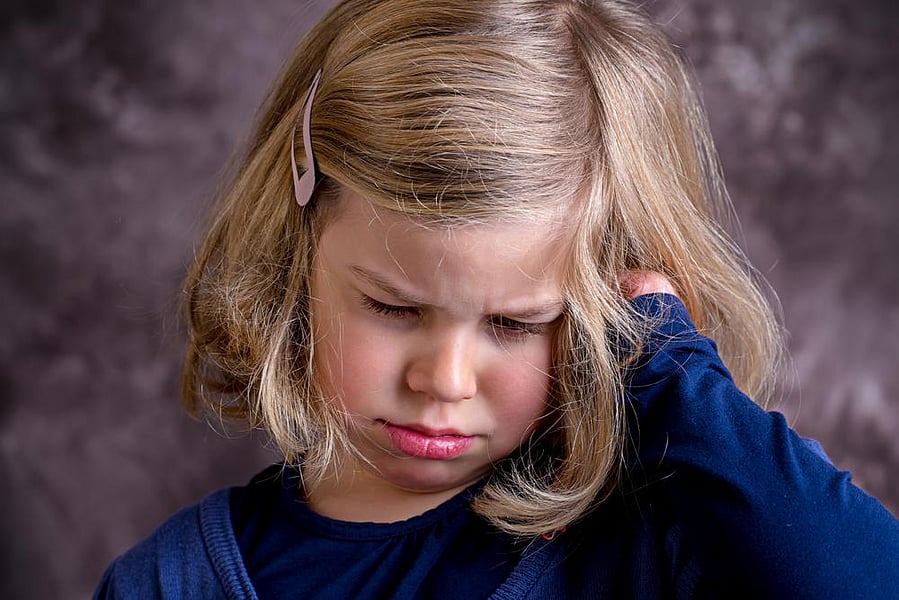Whining, Ages 3 to 6

How can I get my child to stop whining?
Tell him gently but firmly that his whining must stop, and work with him on better ways to express himself. These techniques can help:
- Point out your child's whiny voice as soon as he uses it. You'll have to be on the alert: Chances are you've heard it so often that you don't even notice when it starts. "I'm sorry," you can say upon hearing that plaintive tone, "I can't understand whining. Could you please use your normal voice?"
- Respond to any genuine need -- for example, if your child says he's thirsty and wants a drink.
- State your decision, and move on. Suppose your child whimpers that he wants a soda instead of fruit juice. "No, sweetie, you can't have a soda," you can say. Briefly, tell him why: "Because you had a soda yesterday, and too much soda isn't good for you." Ask your child to repeat what you said so you can see if he understands. Further explanations only provide openings for him to pester you.
- Work on developing your child's verbal skills. He may need practice in putting words together clearly and in using a calm tone of voice. Give him some surefire statements he can use to get your attention: "I'm tired, and I want to go home" or "I need water, please." Promise to respond quickly when you hear them.
- Give him some loving. Now that your child has left babyhood far behind, you may be giving more of yourself to work or other interests besides parenting. While that's nothing to feel guilty about, don't forget that your child still needs time with you and reassurance that your love is constant even if the family's routine is changing.
Why do young children whine?
They may be trying to express an unmet physical need, such as hunger or fatigue; to assert their independence by resisting their parents' instructions; or to get their parents to give them something, like a toy or piece of candy. Preschoolers also whine simply to get attention, particularly from parents who are busy, distracted, or increasingly absent from home. Make sure to give your child plenty of undivided attention -- which means putting your cell phone away for play time, cuddling and talks. Constantly scrolling or taking calls while your child is trying to tell you something gives him the idea that nothing is too important to not be interrupted.
Should I try to humor my child out of whining?
Sure, if it seems to improve his outlook. Often kids crab because they're stuck in a bad mood and don't know how to get out. Help your child turn the corner: Put your hands to your ears and yelp, "Ouch!" when he whines, or tell him that he can't have a soda before dinner because only aliens from outer space do that. If his mood doesn't lighten after a few attempts, stop joking around. Maybe he needs some peace and quiet.
Why does my child whine only when I'm around?
It's a common phenomenon: You walk into a room where your child is happily playing, and -- presto -- he crumples and starts carping. Is he truly unhappy? Maybe, but more likely, he loves you, trusts you, and becomes more emotional when you're nearby. He's also figured out that the fastest and easiest way to get what he wants from you is to whine.
Ask your child to treat you as he does everybody else -- that is, as if you were a "regular" person and not just Mom or Dad. Would he whine if you were a teacher? His favorite uncle? By now your youngster knows he must use words in order to communicate with friends, babysitters, and teachers. Tell him that you need him to do the same with you.
If your child continues to whine with you and not with others, it could be a sign that he needs more time with you or that you frequently give in to his needling. In the first case, you'll need to carve out a little more time for your child and take every opportunity to reassure him of your love. If you've been allowing him to get his way by whining, you need to start holding the line. Respond firmly and consistently to the behavior, and it will eventually end.
References
Frances L. Ilg, M.D., Louise Bates Ames, Ph.D, Sidney M. Baker, M.D., Child Behavior: The classic child care manual from the Gesell Institute of Human Development. HarperPerennial
American Academy of Pediatrics, HealthyChildren.org. Gradeschool. http://www.healthychildren.org/English/ages-stages...
Image credit: Shutterstock
Related Posts
Pandemic Increased Americans’ Concerns About Obesity
TUESDAY, April 11, 2023 (HealthDay News) -- The COVID-19 pandemic led to a...
FDA Postpones Decision on Pfizer COVID Vaccine for Kids Under 5
FRIDAY, Feb. 11, 2022 (HealthDay News) -- The U.S. Food and Drug Administration...
Tezepelumab Reduces Mucus Plugs in Adults With Uncontrolled Asthma
FRIDAY, Sept. 29, 2023 (HealthDay News) -- Tezepelumab is associated with a...
More Cyberbullying, More Suicidal Thoughts Among Teens: Study
TUESDAY, June 28, 2022 (HealthDay News) -- Adolescents who experience...
